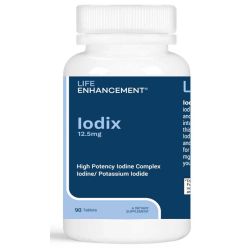
26,96 €
Science-based food supplements
Quantity:
Total:
Total products:
Total shipping: To be determined
Total:
Manufacturer: Kenay GmbH
In stock
| Quantity | Price | You Save |
|---|---|---|
| 2 | 46,51 € | Up to 3,88 € |
| 4 | 45,54 € | Up to 11,63 € |
By buying this product you can collect up to 48 loyalty points. Your cart will total 48 points that can be converted during next order into a voucher of 2,40 €.

REBERSA® Berberine
300 capsules
Item Catalog Number: K2073EN
Original product name: REBERSA® Berberine
Berberine is a natural alkaloid obtained from the Indian barberry (Berberis aristata). Berberine has been used in traditional Chinese and Ayurvedic medicine for centuries.
Berberine supports metabolic health by beneficially modulating the insulin response, normalizes the blood sugar profile (balances both sugar and insulin levels), optimizes the lipid profile, has a beneficial effect on body composition and causes the redistribution of fat tissue.[2]
Metformin and Berberine show similar effects. Both are used in the treatment of diabetes and insulin resistance and both affect AMPK (enzyme involved in the regulation of glucose and fat metabolism) activation. AMPK influences body fat composition and plays a critical role in regulating appetite.[1,11] Metformin affects glucose metabolism, thereby reducing blood sugar levels. Berberine has a similar effect, it also affects the metabolism by reducing insulin resistance. In diabetes and an elevated lipid profile, berberine may be an effective alternative to metformin.[11]
Berberine stronger influences fat metabolism and this may help in the fight against obesity because the effect of berberine is more effective than metformin in regulating lipid metabolism.
Benefits at a Glance:
Berberine activates the 5′-adenosine monophosphate-activated protein kinase (AMPK) pathway, increases glucagon-like peptide-1 (GLP-1) levels, reduces reactive oxygen species production, reverses mitochondrial dysfunction, and suppresses inflammation [4,5].
Berberine supplementation in patients with metabolic syndrome can effectively regulate blood glucose and lipid, reduce insulin resistance and inflammatory response levels.[6]
A clinical trial involving rats was conducted to assess whether Berberine could be effective in the treatment of hypertension in diabetes. In an 8-week study, rats received intragastric Berberine at doses of 50, 100 and 200 mg/kg/day. [7,8]
Studies have shown that regular administration of Berberine at a dose of 100 mg/kg/day not only lowered blood glucose levels, but also lowered blood pressure and improved vasodilation in diabetic rats. The study suggests that berberine not only lowers blood pressure but also improves vasodilation in diabetic rats. Berberine works by activating the potassium channel activated by high conductivity calcium ions (BKCa) in vascular smooth muscle cells (VSMC). Berberine may therefore be used in combination therapy to control hyperglycemia and blood pressure in people with diabetes. As shown in the study, activation of the BKCa channel may be the primary mechanism of action of Berberine responsible for the protection of blood vessels in diabetic patients.[7,8]
Berberine's antioxidant, anti-proliferative, and anti-inflammatory actions inhibit aberrant cell behaviors, such as oxidative stress, proliferation, migration, recruitment, adhesion, and inflammation in cardiovascular diseases. Those actions have been widely substantiated in cell experiments, animal models, and human studies.[12]
Berberine protects endothelial cells from cytokines and inflammatory factors to attenuate vessel remodeling. It also inhibits stimulated vascular smooth muscle cells proliferation to prevent vascular stenosis. Vascular endothelial dysfunction is an early sign in atherosclerosis. Berberine inhibits endothelial dysfunction and boosts endothelial's regeneration process. [12,13]
Berberine helps reduce elevated cholesterol and triglyceride levels. One study involved 32 adult participants who didn't use any therapy to improve their lipid profile. Study participants received berberine at a dose of 500 mg twice a day for three months. Participants in this study had significant reductions from baseline in LDL, triglycerides, and total cholesterol. The LDL level decreased by 25%, the triglyceride level by 35% and the total cholesterol level decreased by 29%.(9,10)
Berberine may support bone health and help prevent osteoporosis. Berberine mainly regulates the estrogen and thyroid hormone signaling pathways, which allows for multidirectional support in the treatment of osteoporosis[14]
Supplementation of 100 mg berberine sulfate trihydrate in healthy postmenopausal women may promote bone formation and reduce bone turnover by reducing serum osteocalcin concentrations and increasing serum vitamin D levels.[14]
Berberine may reduce osteoporosis by enhancing bone mineral density and inhibiting osteoclast. Berberine may also support osteoblast differentiation.[15]
Daily dose: 2 capsule
| Amount Per Day (2 capsules) | |
|---|---|
|
Berberine hydrochloride from Indian barberry (Berberis aristata) root [REBERSA®] |
500 mg |
|
Ingredients: berberine hydrochloride from Indian barberry root (Berberis aristata), capsuleshell: hydroxypropyl methylcellulose |
|
REBERSA® is a trademark of Sabinsa
Vcaps® is a trademark of Lonza or its affiliates.
Product suitable for vegetarians (Vcaps® capsule)
Clean label - capsules contain only active ingredients, without binders, fillers, lubricants and other additives
Dosage and Use
Take 1 capsule twice a day.
Storage: Store in a closed container at room temperature, out of the reach of small children.
Warnings:
Before you start using any dietary supplement, consult your doctor.
Dietary supplements are not medicines.
Do not exceed the recommended daily dose.
Dietary supplements cannot be used as a substitute for a varied diet.
Do not use in case of hypersensitivity to any ingredient of the preparation.
The product should not be used by pregnant or breastfeeding women and children and adolescents under 18 years of age.